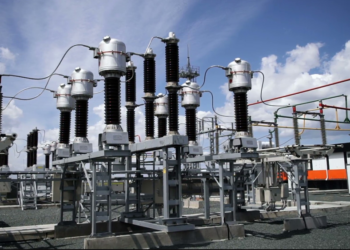Nigeria’s electricity supply dropped further on Monday to 98.19kMWh, representing a 0.2% decline when compared to 98.36kMWh supplied in the previous day. This is according to information from the Transmission Company of Nigeria (TCN).
Energy generation also recorded a 0.1% decline to 99.62kMWh on Monday from 99.7kMWh generated on Sunday, 1st May 2022. Meanwhile, power generation peaked at 4.25kMW, while its off-peak during the day was 3.95kMW.
Nigeria’s electricity supply has continued to witness significant drawbacks in recent months, with the national grid recording multiple downtimes so far in the year, which has caused electricity blackouts in most areas of the country.
Highlight (2nd May 2022)
- Peak generation – 4,248.8MW (-4.5%)
- Off-peak generation – 3,946.2MW (+6.7%)
- Energy generated – 99,617.96MWh (-0.1%)
- Energy sent out – 98,196.01MWh (-0.2%)
The highest frequency for the day was 50.39Hz, while the lowest frequency was 49.23Hz. A further look at the tracker showed that 98.57% of the total energy generated on Monday was sent out to consumers.
Meanwhile, Nigeria’s labour has urged the Federal Government to scrap and reverse the electricity privatisation exercise, noting that the challenges in the electricity sector persist despite the significant support funds into the sector.
This was stated by the president of Nigeria Labour Congress (NLC), Mr. Ayuba Wabba while speaking on Sunday, 1st May 2022 in Abuja during the 2022 International Workers’ Day celebration. He stated that “the challenges in our electricity sub-sector persist despite the acclaimed goodness that the power sector privatization programme promised.”
Why this matters
Electricity is an essential need of many Nigerians and their businesses, especially given the surge in the price of diesel and recent fuel scarcity across the country. The cost of power in the country has gone up and is further exacerbated by constant disruption in the electricity supply.

















